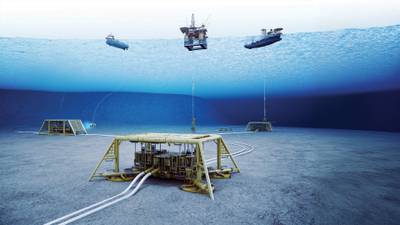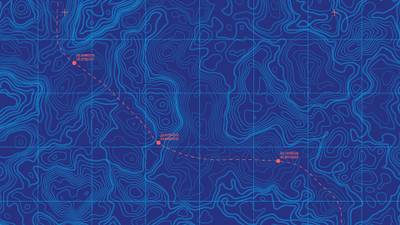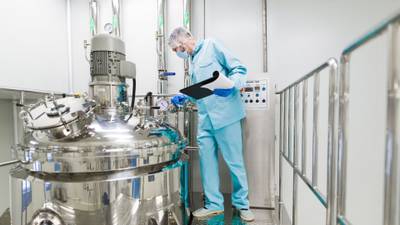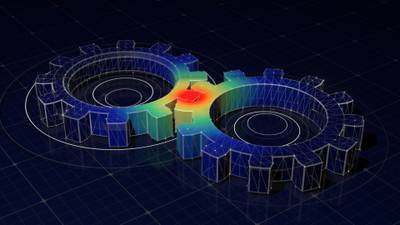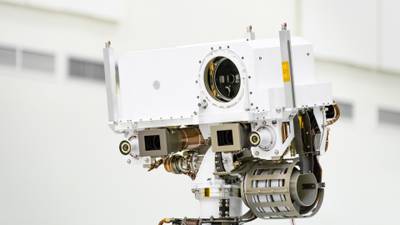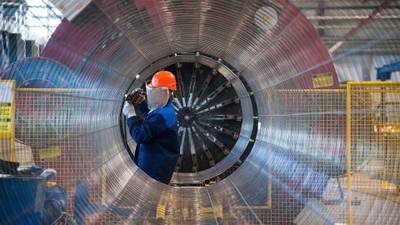Join a Computational Fluid Dynamics course you can study flexibly, 100% online.
Develop your understanding of the fundamental principles and techniques that form the backbone of Computational Fluid Dynamics (CFD).
In this Masters-level online short course, you’ll learn to understand, develop, and analyse successful simulations of fluid flows, and use this knowledge in a wide array of applications.
This course seamlessly integrates numerical methods with hands-on experience using relevant software.
This holistic approach means you’ll be well-equipped to leverage CFD in your future endeavours.
Who can join this online CFD course?
This CFD course is ideal for undergraduate and postgraduate students specialising in mechanical, offshore, civil, and chemical engineering.
It will provide you with a strong foundation in fluid dynamics, which is crucial in these fields.

Build credits towards a Masters degree
This online course is part of:
- MSc Advanced Chemical Engineering
- MSc Advanced Mechanical Engineering
- MSc Advanced Structural Engineering
- MSc Process Safety Engineering
You can use the credits you earn with this short course towards any of these MSc qualifications.
What you’ll study
This course offers an in-depth exploration of physical phenomena in environmental and industrial fluid flows, using numerical simulations as a primary tool.
While these simulations underscore the importance of computational technologies, it’s crucial to note that even advanced CFD software can yield inaccurate predictions of fluid flow behaviour without a thorough understanding of the underlying algorithms and methods.
This CFD course is designed to equip you with the computational methods necessary for solving distinct types of Partial Differential Equations (PDEs) that are commonly encountered in fluid dynamics studies.
Topics you’ll study
You’ll cover topics including:
- fundamentals of numerical analysis of PDEs
- an introduction to computational linear algebra
- discretisation techniques and numerical schemes for solving time-dependent PDE problems
- error control
- stability analysis
- mesh-generation methods, and
- turbulence models.
Hands-on software sessions
To ensure a practical understanding of these concepts, the course includes hands-on sessions with industry-standard software, including Ansys Fluent.
This will enable you to develop your CFD skills effectively.
This comprehensive approach ensures that you’ll complete this course well-prepared to apply your knowledge in real-world scenarios.
By the end of this CFD course, you’ll be able to...
-
Assess the applicability of a particular model or method and its limitations.
-
Select an appropriate set of numerical methods and discretisation schemes for a particular fluid flow application.
-
Demonstrate understanding of fundamental computational fluid dynamics and applications.
-
Demonstrate understanding of finite-difference and finite-volume discretisation of PDEs, and how numerical techniques are applied to flow equations
-
Understand CFD workflow procedures, including mesh generation, numerical discretisation schemes and solver methods, assignment of appropriate initial and boundary conditions, and pre- and post-processing data.
-
Recognise terminologies used by CFD practitioners.
Choose the University of Aberdeen for online CFD courses

Earn as you learn
We fit around full-time work, so you can build qualifications while you keep earning a salary.

You’re in expert hands
We’ve been training world-class engineers for over 100 years and delivering online learning for decades.

20% alumni discount
University of Aberdeen alumni get 20% off fees for this online course.
How you’ll study
Online learning
This distance-learning CFD course is delivered flexibly, 100% online.
You can learn with us anywhere in the world, no student visa required, and manage your study hours to suit you.
Your teaching
This course is taught at Masters level.
Teaching is delivered through MyAberdeen, our online Virtual Learning Environment (VLE). It holds all the materials, tools and support you’ll need in your studies. Take a look around MyAberdeen.
You can access your learning materials on computer, smartphone and laptop, 24 hours a day. You’ll find a range of resources available, including:
- pre-recorded video lectures
- online tutorials
- reading materials
- discussion boards with your tutors and peers
- online access to our award-winning Sir Duncan Rice Library.
Live online tutorials
You’ll have one live online tutorial each week. Each tutorial is scheduled to last for two hours. These will be recorded so that you can view them later if you cannot attend live.
Your tutors
This course is delivered by an internationally experienced team of academics and engineers from our School of Engineering.
This course is assessed online.
You’ll be assessed via:
- a lab report (worth 50% of your final course grade), and
- an online open-book exam (50%).
Live online tutorials
This course features one live online tutorial each week. Each tutorial is scheduled to last for around two hours.
Your course coordinator will take everyone’s time zones into account when setting up live tutorial times for the class.
Tutorials will be recorded so that you can view them later if you cannot attend live.
Study hours
The course totals approximately 150 hours of study and assessment time. That’s around 10 – 15 hours per week.
This is an indicative guide to the time required for a typical student at this level to achieve the learning outcomes. This includes time for independent study, as well as teaching and assessments.
You can largely set your own study hours each week to cover the materials. MyAberdeen is available 24/7, so you can log in and study when it suits you.
Activities with deadlines
There will be some activities scheduled for fixed times, such as your live tutorials, and assessments with deadlines. But otherwise, you can access and work through the course at your convenience.
Our first-class support structure will ensure that you aren’t alone in your studies. You’ll have contact with your coordinator via email, MyAberdeen and Microsoft Teams. You can use social media and discussion boards to chat with your fellow students too.
We provide a wide range of services to support you in your studies and beyond:
- Careers and Employability Service
- Disability support
- IT support
- Library support
- Student Support Service – help with finances, wellbeing, and non-academic issues
- Student Learning Service – study skills support and advice
- Aberdeen University Students’ Association (AUSA) – run by students for students
- Toolkit – clever apps and free training that can make your study life easier
Wherever you are in the world, you’ll feel part of our very special Aberdeen learning community.
Your teaching team

Dr Zaibin Lin
Zaibin is a Lecturer in Mechanical/Civil Engineering in our School of Engineering and will be your course coordinator. He received his PhD in Engineering from the University of Aberdeen in 2017.
Zaibin’s research focuses on high-fidelity computational fluid dynamics model developments and applications for offshore and marine engineering.
View Zaibin’s profile
Dr Jefferson Gomes
Jeff is a Senior Lecturer in Energy. He has over 15 years’ experience in developing computational models for energy applications. He’s particularly interested in the simulation of renewable energy systems and in geothermal energy. Jeff has published over 30 journal articles, 20 industrial technical reports, and three book chapters.
View Jeff’s profileWhere this will take you
Towards a Masters
You’ll earn 15 credits at Masters level (SCQF Level 11) with this course. You can use these credits towards our:
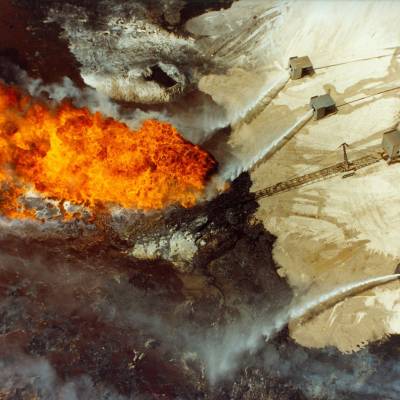
Masters in Process Safety Engineering
Become a qualified process safety engineer, ready to work in any chemical processing sector. Join an online degree you can fit around full-time work.
View MSc Process Safety Engineering
Masters in Advanced Chemical Engineering
Develop your knowledge and qualifications in chemical engineering, design and practice, with an emphasis on safety and sustainability. Study flexibly online in this degree that fits around full-time work.
View MSc Advanced Chemical Engineering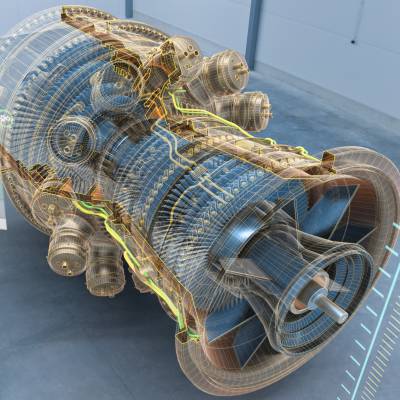
Masters in Advanced Mechanical Engineering
Earn your MSc in Advanced Mechanical Engineering online. Study flexibly and build the advanced skills demanded by the world’s leading employers in the automotive, energy, defence, aerospace, and manufacturing sectors.
View MSc Advanced Mechanical Engineering
Masters in Advanced Structural Engineering
Prepare for a career in the aerospace, automotive, and energy sectors, as well as civil, structural, and construction, with our flexible online Masters degree.
View MSc Advanced Structural EngineeringCFD careers
This course will equip you with the necessary skills and knowledge to excel in a range of job roles, including:
- CFD Analyst – responsible for using CFD software to simulate fluid flow problems
- Aerospace Engineer – using CFD for designing and optimising aircraft and spacecraft
- Mechanical Engineer – applying CFD principles in the design of HVAC systems, turbines, and other machinery
- Automotive Design Engineer – using CFD to optimise the aerodynamics of vehicles
- Process Engineer – implementing CFD in the design and optimisation of chemical processes.
Continuing Professional Development (CPD)
Your employer or professional institute may recognise this course for CPD hours. Talk to your employer or institute to find out more.

Free career support
Access our free careers service while you study.
- 1:1 appointments
- CV checks
- Interview prep
- Job opportunities
Entry requirements
Entry requirements
We welcome students from all over the world.
This course has no formal entry requirements. You do not need to provide proof of your qualifications.
But you do need to check the entry guidance above to understand the level of teaching delivered, to decide if this course is right for you.
If you do not have qualifications from the UK, check the equivalent teaching level for your country.
Visa requirements
You do not need a student visa to study online with us.
English language requirements
Teaching is delivered in English.
You do not have to provide proof of your English language skills to join this course. But we want to make sure that you can use English well enough to study successfully.
Recommended level of English
For this course, we recommend the following level of English language proficiency.
These are our Postgraduate Standard requirements, and these are minimum scores.
IELTS Academic, IELTS UKVI Academic, or IELTS Online (not IELTS Indicator or IELTS General Training)
- 6.5 overall
- 5.5 for listening, reading and speaking
- 6.0 for writing
TOEFL iBT or TOEFL iBT Home Edition
- 90 overall
- 17 for listening
- 18 for reading
- 20 for speaking
- 21 for writing
- TOEFL DI code is 0818
Cambridge English: B2 First, C1 Advanced, or C2 Proficiency
- 176 overall
- 162 for listening, reading and speaking
- 169 for writing
LanguageCert Academic / LanguageCert Academic SELT
- 70 overall
- 60 for listening, reading and speaking
- 65 for writing
Oxford ELLT Digital – English Language Level Test Online
- 7.0 overall
- 5.0 for listening, reading and speaking
- 6.0 for writing
PTE Academic (online test not accepted)
- 62 overall
- 59 for listening, reading, speaking and writing
Skills for English: SELT
- B2 pass with merit
Duolingo – tests taken from 1 July 2024 onward
- 120 overall
- 95 for listening, reading and speaking
- 105 for writing
University of Aberdeen English Pre-sessional Programme (PSE)
- Pass
- Valid for one year. Refresher can be offered if out of date
Pre-sessional academic English preparation programmes undertaken at other UK universities
- Pass at an equivalent of 6.5 (C1)
- B2 in all four skills
- Certification must be within one year prior to the start of your course
For full information about language requirements, see our English Language Requirements page.
You will need access to:
A computer (PC, laptop or Mac) with an up-to-date operating system
Most teaching materials are smartphone- and tablet-friendly. But we recommend a proper laptop or desktop for completing assignments comfortably.
Reliable internet access
We recommend:
- a wired connection
- a minimum download speed of 2 Mbps so you can take part fully in live sessions.
Speakers or headphones
- We recommend a headset with built-in microphone and earphones if you’re likely to study in an environment with background noise.
- A webcam is optional, but you may like to use one for some interactive sessions.
Software
We’ll give you access to Office365 applications. This means you can use online versions of Microsoft Word, Excel, PowerPoint and OneDrive and install these programs on up to five personal devices.
If your course requires specialist software, we’ll provide you with access to this and a licence that lasts throughout your studies.
See our detailed IT requirements for more information.
When you study with us, you can expect a first-class support structure so that you’re never alone in your studies.
But learning online does mean you have to motivate yourself and manage your own time.
Your most important commitment will be time – the time to work through, reflect on and understand your teaching materials.
Before you start a course that involves a high degree of independent study, we recommend looking at the time you will be able to devote to your studies each week:
- Be realistic
- Create a weekly schedule as a guide
If you have any questions about studying online, get in touch with our friendly team. We’re here to help.
Fee payment
Your course fee needs to be paid in full before you start your course.
We accept payment via Visa Debit, Visa Credit and Mastercard.
Ways to save
You may be able to get help funding this course via:
- discounts – if any discounts are available for this course, they’ll appear in the section below
- employer sponsorship – we accept full and partial fee payments from sponsors.
Find out more about funding options.
Student card
All our students are entitled to a University of Aberdeen student card. This gives you access to a range of student discounts around the city and online.
Learning resources
Access to all the books and resources you need are included in your tuition fee. They’ll be made available to you online and you do not have to buy your own copies.
Printing
You may wish to set aside a small budget for printing, depending on how you like to work.
This course has no formal entry requirements. You decide if it’s suitable for you.
The course is delivered at Masters level. At this level, you’d usually have at least:
- a 2:2 UK honours degree (or equivalent)
- a solid understanding of matrix algebra
- proficiency in fluid mechanics
- a solid grasp of engineering mathematics, and
- familiarity with engineering analysis and methods.


